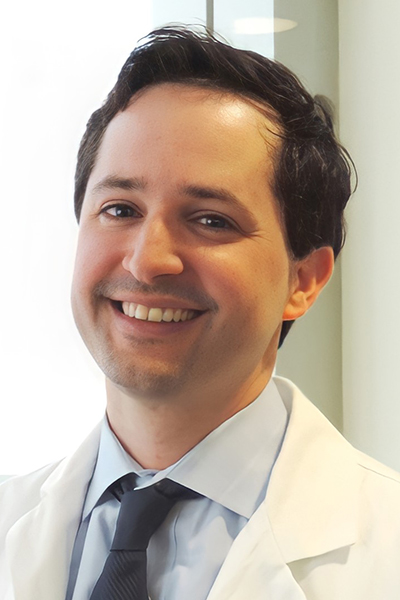The 2020 discovery of VEXAS (vacuoles, E1 enzyme, X-linked, autoinflammatory, somatic) syndrome, a disease that causes inflammatory and hematologic symptoms, was the catalyst for the focus of this year’s Basic and Clinical Research Conference on the genetics of somatic mutations.

“One of the points of the preconference meeting is to pick topics that are on the cutting edge of rheumatology, and this year is no exception,” said Peter Grayson, MD, MSc, one of the moderators. “People will leave the conference recognizing why it’s extremely important for rheumatologists to be aware of somatic mutations.”
Joining Dr. Grayson as co-moderator is Jill Norris, PhD, MPH, Chair, Department of Epidemiology, Colorado School of Public Health.
Building off a positive reception to a change in format last year, the Basic and Clinical Research Conference will be a combined one-day session again at ACR Convergence 2022.
“The general consensus was that combining basic science and clinical research into one conference was more exciting than separating them,” Dr. Grayson said.
Presentations from a multidisciplinary roster of speakers will take place from 9 a.m.–5:30 p.m. ET on Friday, November 11, in Terrace Ballroom IV. The advance programming session will be livestreamed from the Philadelphia Convention Center and available on demand following the live presentation.
“Somatic mutations are driving research in a number of different medical disciplines, and this is a chance to learn about that and, more importantly, to understand why learning what’s happening in other specialties is valuable for us to know in rheumatology,” Dr. Grayson said.
Experts representing specialties such as genetics, cardiology, hematology, and immunodeficiencies will discuss understanding and detecting somatic mutations, examples of somatic mutations within rheumatology and in other disciplines, and integrating research on somatic mutations into clinical practice.
“What do we want in rheumatology? We want to know what causes our diseases and we want cures, but we have never gotten close to that,” Dr. Grayson said. “This conference is exciting because I think it is an inroad into ultimately achieving that goal.”
Dr. Grayson, Chief of the Vasculitis Translational Research Program and Acting Director of the National Institute of Arthritis and Musculoskeletal and Skin Diseases Rheumatology Fellowship Program at the National Institutes of Health (NIH), was part of the group at the NIH to identify VEXAS syndrome.
“This is a disease that’s caused by somatic mutations, and clinical rheumatologists are starting to hear that these somatic mutations may actually cause rheumatologic diseases and could lead us to finding cures for rheumatologic diseases,” he said. “This conference will really broaden and deepen people’s understanding of that concept.”
The conference program is as follows.
Understanding Somatic Mutations and their Detection
- Detection of Somatic Mutations and Somatic Mutations in Normal Tissue: 9–9:45 a.m. ET, Peter Campbell, PhD, Wellcome Sanger Institute
- Importance of Germline Genetics in Rheumatology: 9:45–10:40 a.m. ET, Ivona Aksentijevich, MD, National Human Genome Research Institute
Examples from Other Disciplines
- Somatic Mutations in IBD: 10:55–11:30 a.m. ET, Sigurgeir Olafsson, PhD, Wellcome Sanger Institute
- Clonal Hematopoiesis of Indeterminate Potential: 11:30 a.m.–12:05 p.m. ET, Alexander Bick, MD, PhD, Vanderbilt University
- Somatic Mutations in Immunodeficiency: 12:05–12:40 p.m. ET, Megan Cooper, MD, PhD, Washington University School of Medicine
Examples from Rheumatology
- Discovery of the VEXAS Syndrome: 1:30–2:05 p.m. ET, David Beck, MD, PhD, New York University
- Somatic Mutations Shape Autoantibody Response: 2:05–2:40 p.m. ET, Joanne Reed, PhD, Westmead Institute for Medical Research
- Somatic Mutations in Erdheim Chester Disease: 2:40–3:15 p.m. ET, Juvianee Estrada-Veras, MD, National Human Genome Research Institute
How to Integrate into Research and Clinical Practice
- Integration of Genetics into Multiomics Discovery in Rheumatology: 3:30–4:15 p.m. ET, Fan Zhang, PhD, The University of Colorado
- Role of Somatic Mutations in Future Disease Taxonomy in Rheumatology: 4:15–5:15 p.m. ET, Daniel Kastner, MD, PhD, National Human Genome Research Institute
- Closing Remarks: 5:15–5:30 p.m. ET
Register Today for ACR Convergence 2025

If you haven’t registered for ACR Convergence 2025, register today to participate in this year’s premier rheumatology experience, October 24–29 in Chicago. All registered participants receive on-demand access to scientific sessions after the meeting through October 31, 2026.
